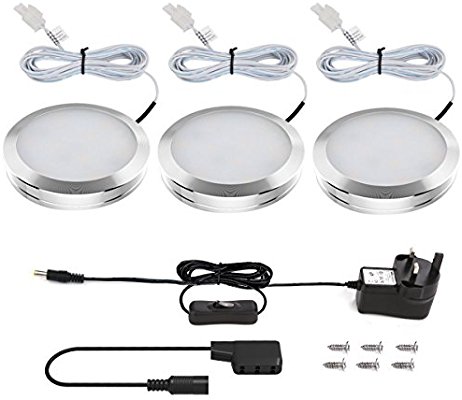First time installing under unit lights in kitchen and a bit of confusion has arose.
Eventually found ones to buy (harder than I imagined) but these 12v lights come with fused plug. Reason for confusion is I have 1.5mm T and E coiled up coming from 3amp FCU to wire these.
Firstly, are most low voltage cabinet lights wired like this?
Secondly, as I have wired in 1.5mm but now have to wire into socket instead (My initial thought was this would go into a JB) is it acceptable (sockets would be above unit so nothing else would get plugged into it) or any other options advised.
Eventually found ones to buy (harder than I imagined) but these 12v lights come with fused plug. Reason for confusion is I have 1.5mm T and E coiled up coming from 3amp FCU to wire these.
Firstly, are most low voltage cabinet lights wired like this?
Secondly, as I have wired in 1.5mm but now have to wire into socket instead (My initial thought was this would go into a JB) is it acceptable (sockets would be above unit so nothing else would get plugged into it) or any other options advised.



